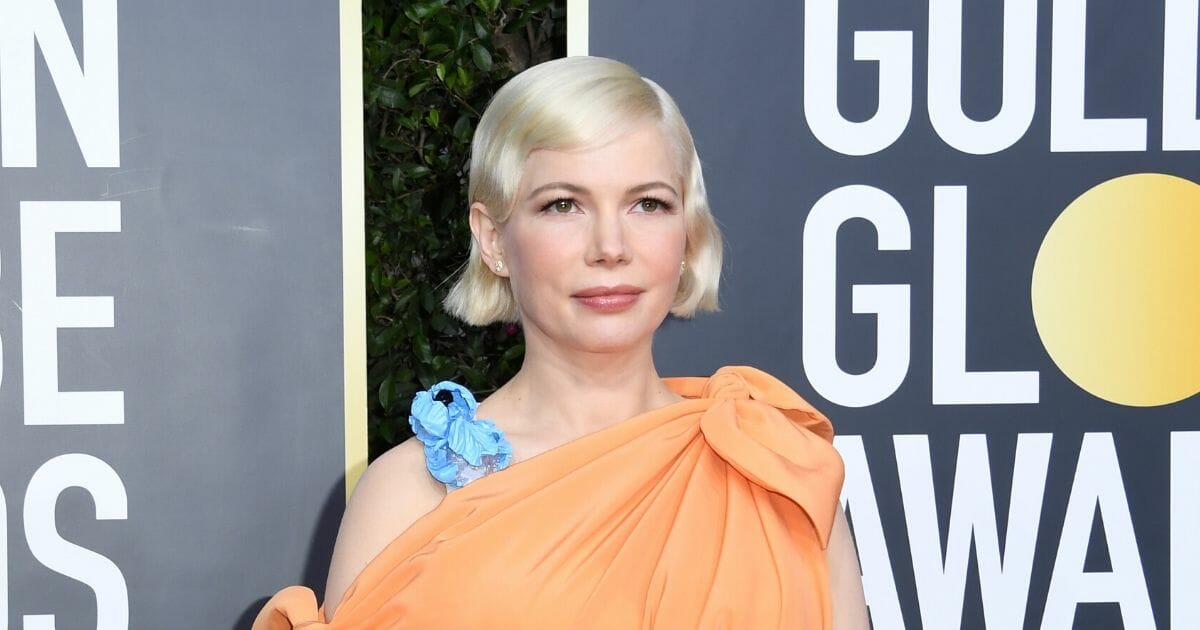
Feminists Voting for Abortion Are Doing Men and Themselves a Favor, Not Women
On Jan. 5, the 2020 Golden Globe Awards once again rolled out the red carpet for Hollywood’s high society.
In bawdy fashion, host Ricky Gervais highlighted Hollywood’s hypocrisy and instructed celebrity attendees to refrain from “woke” political grandstanding.
Still, Michelle Williams could not resist.
In a lazy sequel to her 2019 Emmys speech on equal pay, this time the actress expressed her gratefulness for abortion access. And unsurprisingly, her words set Twitter ablaze with applause and attacks from both sides of the issue.
Standing on stage pregnant, with a glimmering award grasped in her hand, Williams said, “I wouldn’t have been able to do this without employing a woman’s right to choose.”
“Women, 18 to 118, when it is time to vote, please do so in your own self-interest. It’s what men have been doing for years, which is why the world looks so much like them. But don’t forget: We are the largest voting body in this country. Let’s make it look more like us.”
As our nation looks toward the 2020 elections, Williams’ speech prompted two important questions. Unfortunately, as Gervais pointed out, celebrities are in no position to answer them.
First, what happens in a state or a nation where we vote out of “self-interest” with the goal of making the electorate “look more like us”? Second, what happens when we view children as an inconvenient obstacle to success, rather than an inspiration?
These two questions are deeply intertwined within the realm of identity politics.
Identity politics is the idea that our voting decisions should be the product of our race or sex. In other words, candidates who belong to your race or sex are best suited to serve you and your self-interest. The problem with identity politics is that candidates often then take their voter base for granted, resting on the “laurels” of sex- or race-based identity.
When we reduce our voting decisions to nothing more than self-interest and racial or sexual representation, we create a nation where politicians are free to pander according to our race, sex and selfishness.
This means they stop viewing us as future constituents and start valuing us only for our color or sexuality. It also means that we as voters often fail to sufficiently consider whether the political views of a candidate truly work toward the common good.
The premise of Williams’ argument was this:
If we vote to make the electorate look more like us women, then they will serve own self-interest.
If pregnancy fails to serve our own self-interest, then we should be free to terminate that pregnancy with an abortion.
Therefore, protecting the abortion industry is within our own self-interest.
In the same fashion of identity politics, Williams’ speech spoke to women as a monolith — a pro-abortion block of society that seeks its own interest and wants to see more women in political power.
Williams failed to recognize that she speaks from a privileged podium, recklessly declaring that abortion is what makes her kind of success possible. It’s the same empty promise that the abortion industry has been promising for years, but has yet to fulfill.
She failed to acknowledge the millions of women who work hard to pursue their dreams and raise their children at the same time. With or without a man’s support, many single mothers still achieve success. With or without a glittering award, each day they still say “yes” to the responsibilities and challenges that come with bringing life into this world.
But Williams did not discuss making this nation a better place for the everyday mother. She did not demand we guard motherhood against obstacles that everyday women face in places like work, education and finances.
Instead, she insisted that motherhood itself is the obstacle to be obliterated when pregnancy inconveniently arises.
How timely, since Jan. 22, 1973 marks the anniversary for the Supreme Court’s Roe v. Wade decision. Williams, however, seems to be unaware that legalized abortion has been eliminating the burdens of male responsibility, fatherhood and child support payments since its very inception.
In other words, Roe v. Wade has been serving the “self-interest” of men for 46 years.
So when I go to the ballot box, I will do so in my “own self-interest,” just as Williams advises. I will vote for candidates who protect and empower my greatest self-interest: life. From the day I was conceived to the last breath I breathe, the value of my life must be upheld and protected.
But unlike she advises, I will not judge a candidate’s fitness for office based on their sex or how much they make our elected body “look like” me.
When I vote, I will continue to evaluate candidates just as I would wish to be evaluated by others: according to the content of character, actions and expertise — not by sex or color.
When I vote, I will vote as an individual, not an identity.
The views expressed in this opinion article are those of their author and are not necessarily either shared or endorsed by the owners of this website. If you are interested in contributing an Op-Ed to The Western Journal, you can learn about our submission guidelines and process here.
Truth and Accuracy
We are committed to truth and accuracy in all of our journalism. Read our editorial standards.
Advertise with The Western Journal and reach millions of highly engaged readers, while supporting our work. Advertise Today.












